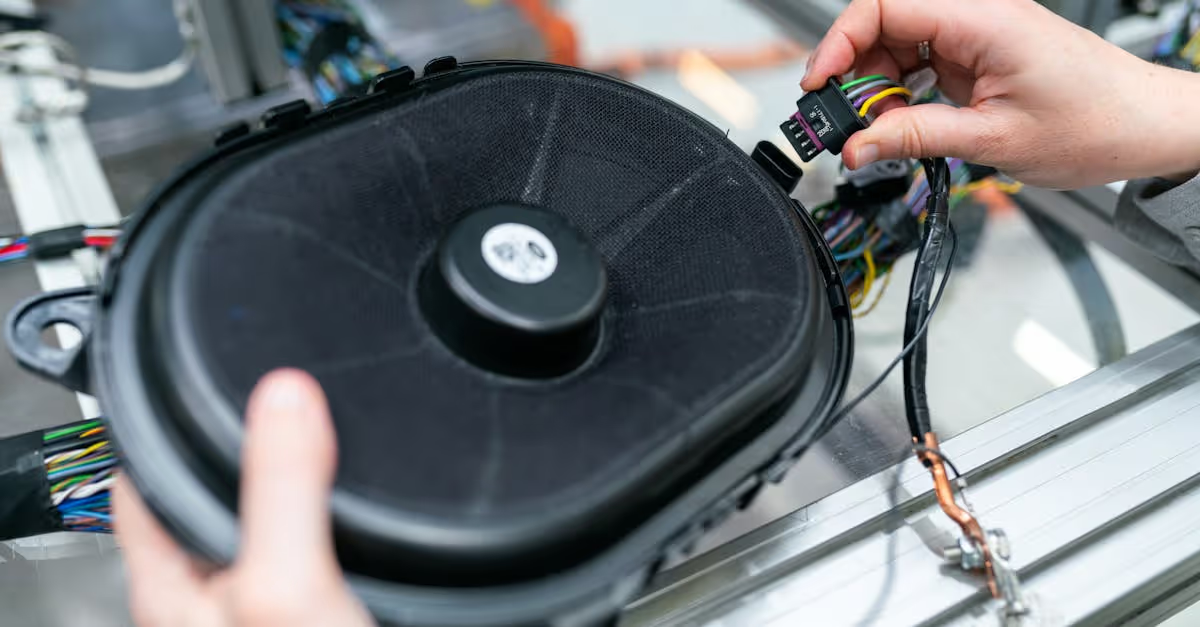Key Takeaways
- Importance of Metal Testing: Regular testing for metals like iron and copper is crucial for maintaining clean, attractive pool water and preventing costly staining issues.
- Common Sources of Metals: Iron and copper can enter pools through well water, corroding fixtures, and environmental factors like rainwater runoff, making awareness essential.
- Testing Methods: Test strips offer quick results, while liquid reagent kits provide more accurate readings for metal contamination, allowing pool owners to choose based on their needs.
- Chemical Treatments: Using metal sequestrants and acids like ascorbic or citric acid can effectively treat existing stains and manage metal levels in pool water.
- Preventative Measures: Strategies such as using quality water sources, inspecting metal fixtures, and utilizing pool covers can help prevent metal buildup and protect pool aesthetics.
When we think about maintaining a sparkling pool, we often overlook one crucial aspect: metal contamination. Did you know that nearly 50% of pool owners experience issues with metal staining? Iron and copper are the most common culprits, leading to unsightly discoloration that can ruin our oasis.
Understanding how to test for these metals is essential in preserving our pool's beauty. With simple testing kits, we can quickly identify the presence of these elements and take effective measures to treat any resulting stains. In this article, we'll explore the best methods for testing pool water for metals and share practical solutions to keep our pools pristine and inviting.
Overview of Testing for Metals in Pool Water
Metal testing plays a vital role in maintaining clean and attractive pool water. Identifying metals like iron and copper helps us understand water quality and address staining issues effectively.
Importance of Metal Testing
Metal testing helps us prevent unsightly stains on pool surfaces and maintain proper water chemistry. Stains can turn our pristine blue oasis into a patchwork of discoloration. Regular testing helps us catch metal contamination early, saving us from extensive cleaning or costly repairs. If we neglect this, we might experience fading tiles and rusty fixtures, leading to frustration and unwanted expenses. With easy-to-use test kits available, evaluating our water regularly becomes a straightforward task. After all, do we want our pools to be a clear blue paradise or a rusty relic from the past?
Common Metals Found in Pools
Iron and copper frequently enter our pools through various sources. Iron often stems from well water or corroding metal fixtures. When exposed to chlorine, it can precipitate and cause unpleasant brown stains. Copper usually finds its way into our pools from copper-based algaecides or corroding pool heaters, leading to green or blue staining. Other metals, such as manganese and lead, can also cause discoloration. Regular testing helps us identify these metals, allowing us to take action before stains become stubborn. With this knowledge, we can enjoy our pools without worrying about their appearance. What’s your experience with metal staining in your pool? Have you faced any challenges that testing could have addressed?
Methods for Testing Metals
Testing pool water for metals like copper and iron is vital for keeping our pools looking their best. Identifying the presence of these metals prevents staining, fading, and damage.
Test Strips vs. Liquid Reagents
Test strips provide a quick method for detecting iron and copper levels in pool water. Specialty strips designed for this purpose allow us to get results in seconds, making them convenient for regular checks. However, while they’re fast, they might lack the precision of liquid reagent kits. Liquid reagent kits involve mixing two or more chemicals into a water sample. For example, we use bicinchoninic acid to test for copper, which produces shades of purple, and phenanthroline for iron, resulting in orange and red hues. The downside? They can be a bit more involved than simply dipping a strip. Yet, their accuracy makes them a solid choice for those who value precise results.
Causes of Discoloration and Staining
Discoloration and staining in our pool water mainly occur due to metals like iron and copper. Understanding these causes helps us maintain a clean and inviting pool.
Sources of Iron and Copper
Iron and copper commonly enter our pools from several sources. Fill water serves as a primary contributor, especially if it comes from a well or if municipal water flows through old, rusty pipes. When selecting water, we must consider its quality. Corrosion of metal equipment in the pool, such as heaters or ladders, can also introduce these pesky metals. Even metal objects that accidentally end up in our pool can lead to discoloration. Taking preventative measures can help us avoid unsightly stains.
Environmental Factors
Environmental elements play a significant role in the presence of iron and copper. Rainwater runoff can carry metals into pool water, especially in certain geographic areas with higher metal concentrations in the soil. Pool chemistry also matters. Imbalanced pH or inadequate chlorine levels can exacerbate staining problems, allowing metals to react more easily and create unwanted discoloration. Regular testing and maintaining our pool's chemistry help mitigate these effects. How do we stay vigilant against these challenges in our pools? What steps can we take to protect our investment and keep our water crystal clear?
Treatment Options for Discoloration and Staining
Addressing discoloration and staining in pool water involves several effective strategies. By promptly treating these issues, we maintain not just the appearance but also the overall health of our pool.
Chemical Treatments
Chemical treatments serve as a quick remedy for metal stains caused by copper and iron. Applying a metal sequestrant can help bind these metals, preventing them from reacting with chlorine and causing unsightly stains. Brands like Jack's Magic and Metal Free offer reliable options. Regularly adding these treatments keeps metal levels manageable and protects pool surfaces. Additionally, we can use ascorbic acid or citric acid to eliminate existing stains. They work wonders by breaking down metal compounds, making it easier to restore clarity to our water. Following the manufacturer's instructions ensures we achieve optimal results. Always test the water's pH and alkalinity before and after treatment to maintain balanced chemistry.
Preventative Measures
Preventative measures play a crucial role in avoiding metal issues in our pools. One of the simplest ways to prevent metal build-up involves using a quality water source. If we fill our pool with well water, testing and treating it for metals beforehand becomes essential. Regularly inspecting metal fixtures can prevent corrosion that contributes to metal contamination. Utilizing a pool cover during storms can also protect our pool from runoff, reducing potential metal introduction. Additionally, investing in a high-quality filter helps maintain water clarity. Filters capture debris and particles that might introduce metals, promoting a cleaner swimming environment for everyone. What preventative strategies do we currently use? Sharing our experiences can help our community combat these pesky stains together.
Conclusion
Addressing metal contamination in our pools is essential for maintaining their beauty and functionality. By regularly testing for iron and copper we can catch potential issues before they lead to staining and costly repairs. Utilizing the right testing kits allows us to stay informed about our water quality.
Implementing effective treatment methods and preventive measures will help us combat discoloration and keep our pools inviting. With a proactive approach we can ensure our swimming environments remain clean and enjoyable for everyone. Let’s continue to share our tips and experiences to foster a community of informed pool owners dedicated to preserving our backyard oasis.
Frequently Asked Questions
What causes metal staining in swimming pools?
Metal staining in swimming pools is primarily caused by the presence of iron and copper in the water. Common sources include well water, corroding metal fixtures, and accidental introduction of metal objects. When these metals react with chlorine, they can leave brown or green stains, affecting the pool's appearance.
How can I test for metal contamination in my pool?
You can test for metal contamination using simple testing kits available at pool supply stores. There are two main types: test strips, which offer quick results, and liquid reagent kits, which provide more accurate measurements. Regular testing helps identify issues early to maintain pool clarity.
Why is it important to test for metals in pool water?
Regular testing for metals like iron and copper is crucial to prevent unsightly stains and protect your pool's appearance. Neglecting this can lead to fading tiles, discoloration, and costly repairs. Proper water chemistry and early detection help keep your pool clean and inviting.
What are some treatment options for metal stains in pools?
To treat metal stains, you can use chemical treatments such as metal sequestrants, ascorbic acid, or citric acid. It's essential to follow manufacturer instructions and test your water chemistry before and after treatment to ensure effectiveness and safety in maintaining your pool.
How can I prevent metal contamination in my pool?
Prevent metal contamination by using quality water sources, inspecting metal fixtures regularly, and covering your pool during storms. Additionally, investing in high-quality filters can help reduce the introduction of metals and maintain clear pool water. Regular maintenance and chemistry checks are also key.






